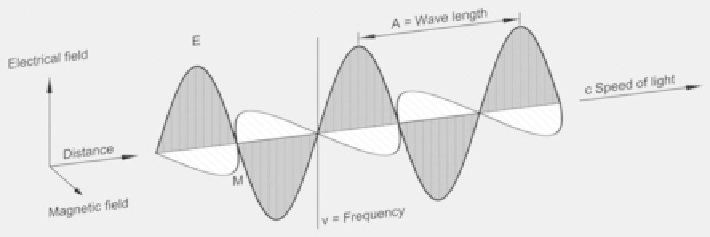Database Reference
In-Depth Information
Fig. 1.2 An electromagnetic wave as interplay of an electrical and a magnetic field
thus allow an immediate refinement of the analysis. So instead of using the same
model for actions for a constant period (e.g., a day or a campaign) - as in existing
data mining systems - and then analyzing the results subsequently, the continuous
interplay of analysis and action brings about a new
quality
of analytics systems.
The second advantage lies in the fact that adaptive analytics systems require
fewer statistical conditions, as they explore their environment independently and
can adapt to local circumstances. Adaptive finite element methods (FEMs) for
solving differential equations offer a nice analogy here: whereas conventional
FEM methods impose a number of regularity conditions on differential equations
(shape and smoothness of the boundaries, load function space, etc.), which in
practice are often difficult to verify, adaptive error estimators look independently
for potential error locations such as singularities and refine the solution function
grids locally. As a consequence, adaptive FEM methods, both in theory and in
practice, are far more flexible and robust than conventional methods.
The third advantage, immediate adaptation to a changed environment, follows
from the realtime concept. In classical data mining, models are first laboriously
constructed from historical data and then used productively for actions for some
considerable time. As a result, they are often out of date by the time they come to be
used, because environmental conditions such as availability or price have changed or
competitors have taken action. Realtime analytics models, on the other hand, are
always up to date and adapt constantly to their changed environment.
The fourth advantage has already been described: no storage of historical data
is necessary. Expensive data warehouses or data marts are no longer a condition for
realtime analytics, making it much leaner and more flexible.
1.4 Disadvantages of Realtime Analytics Systems
Of course, adaptive analytics systems have disadvantages as compared with
conventional systems too. They are much more complex theory, restricted
method classes, and direct feedback required.

